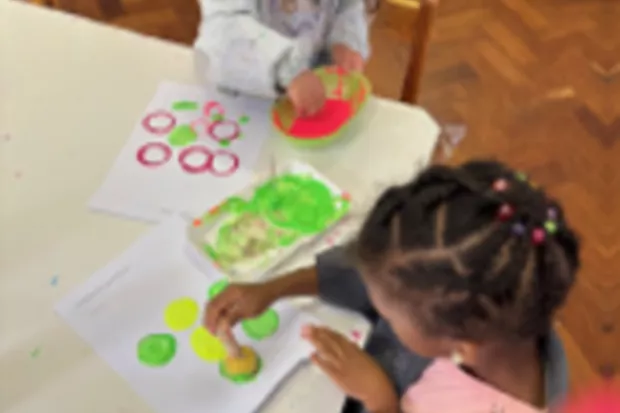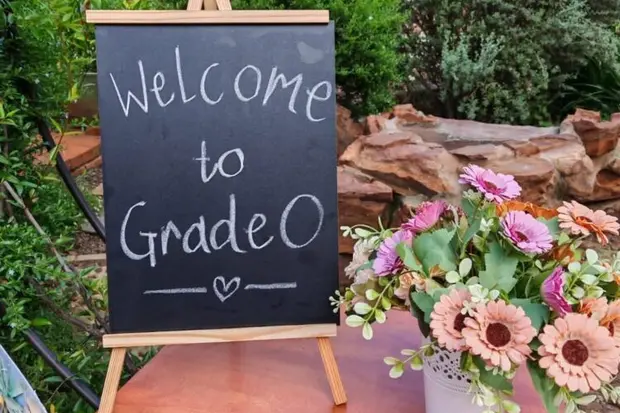From the Junior School head's desk: 29 September 2023
Written in September 1959 and published as part of the first installment of her diaries (Reborn: Journals and Notebooks, 1947–1963) Susan Sontag’s 10 rules for raising a child – her son – have been much on my mind since I first read them in the holidays. They appear on Maria Popova’s blog, the marginalian, along with her observation that underpinning the rules “is a subtle but palpable reverence for the precious gift of ‘childishness’”. I reproduced them in full for the teachers at our first staff meeting of the term; I reproduce them below for you to read now.
1. Be consistent.
2. Don’t speak about him to others (e.g., tell funny things) in his presence. (Don’t make him self-conscious.)
3. Don’t praise him for something I wouldn’t always accept as good.
4. Don’t reprimand him harshly for something he’s been allowed to do.
5. Daily routine: eating, homework, bath, teeth, room, story, bed.
6. Don’t allow him to monopolize me when I am with other people.
7. Always speak well of his pop. (no faces, sighs, impatience, etc.)
8. Do not discourage childish fantasies.
9. Make him aware that there is a grown-up world that’s none of his business.
10. Don’t assume that what I don’t like to do (bath, hairwash) he won’t like either.
Aside from the more personal revelations about Sontag, including her distaste for bathing and washing her hair, the list – even the reference to her son’s father (“his pop”) – has easy application in our school environment and resonates with the relationship of trust and mutual respect we are trying to build with the children in our care. I recognise in Sontag’s list the sensible and sensitive understanding of the child that we are familiar with from the Reggio philosophy, the daily “reverence”, in Popova’s words, for the world of the child along with a recognition of our responsibility to inhabit it with awe, tenderness and, dare I say, discipline.
Widely misunderstood and regularly deployed as a more palatable alternative to the idea of punishment, “discipline”, unsurprisingly, finds its real roots in teaching. Seen through the filter of Christian philosophy, discipline is an expression of love requiring repeated effort. The teachers in the Junior School try to guide and nurture the children in our care without losing sight of the values of truth and justice, service and duty, respect, trust, and forgiveness. We spend time and effort teaching our pupils to be accountable for their actions, receptive to feedback, and willing to make amends. Discipline is included in our definition of learning, and we encourage the children “to recognise and embrace their responsibility to develop their full potential by participating actively in the education process at St Mary’s” (Statement on the Educational Philosophy of St Mary’s).
Our approach to discipline in the Junior School differs from phase to phase and is designed to be proportional and responsive to different developmental needs. How we intervene depends on where the child is at as well as the nature and gravity of the situation. Our commitment to the hard work of restoration and repair is reflected in our Educational Philosophy which speaks about instilling in our children “the resilience, persistence and determination to pick themselves up after failure.” Children make mistakes; how they respond to these mistakes, and the support they receive from their teachers and parents in acknowledging their mistakes, is formative.
All our interventions are shaped by our desire to instil self-discipline, self-sufficiency, conscientiousness, and a sense of community in our pupils. Of course, we cannot achieve this objective on our own. We appeal to parents and other caregivers to support your children and the school by familiarising yourself with our policies and structures and discussing issues, at home, that affect your children, their grade, and our community. Communicating openly with each other helps us to work together to address and resolve concerns about conduct, behaviour, safety, and wellbeing as they arise – it helps us to raise our children with good sense, and sensitivity, together.
SARAH WARNER
JUNIOR SCHOOL HEADMISTRESS
Related News

Little Saints News

Grade 0 News

Grade 7 News
